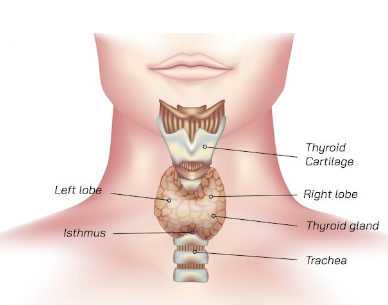Symptoms of Thyroid Disease
Thyroid disease is one of the common disorders caused due to the abnormal working of the thyroid gland located just below the neck. The thyroid gland – a highly vascular organ that is shaped like a butterfly located at the base of neck – is responsible for the metabolism, energy and hormonal regulation of the human body. The dysfunction of the thyroid not only causes an elevation or decrease in hormone levels but also numerous symptoms which could be severely debilitating for day to day activities.
In terms of the clinical treatment, it is important to recognize the signs of the disease in order for early intervention to have a positive outcome. The following narrative will focus on the specific characteristics, professional highlights, and practical applications of the symptoms of thyroid disease. The narrative will also encompass the dominant issues related to the phenomenon, the benefits and negative aspects, and end with an extensive FAQ section addressing the most asked questions regarding the symptoms of thyroid disease.

Symptoms of Thyroid disease
There are two broad categories of patience those who are suffering from either hyperthyroidism or hypo controlled conditions and they exhibit variation with regard their illness and treatment.
General Features:
Fatigue and Weakness: Deep fatigue is overwhelming relatively speaking one of the common symptoms to hypothyroidism. Some individuals feel, its too much effort to attempt a task even though sleep time considered the regular amount has already been achieved.
Weight Alterations: It is common for those with hypothyroidism to be overweight whereas lethargy and increased appetite seem to be the norm for patients suffering with hyperthyroidism.
Sensitivity To Temperature: Cold intolerance is a characteristic of patients with hypothyroidism whereby patients with hyperthyroidism seem to deal with the opposite – heat intolerance.
Change in Mood: Emotional symptoms in patients suffering from thyroid dysfunction includes anxiety and depression which is noted to be fairly common.
Changes in Skin and Hair: Thin hair and extremes in sweating are more prone in hyperthyroid patients. Similarly, dry skin and hair could be attributed to hypothyroidism.
Memory Issues: In both conditions, patients complain of memory disturbance or concentration deficiency, often termed as “brain fog”.
Change In The Menstrual Cycles: Women with thyroid disease may sustain alterations in their monthly menstruation cycles such as heaviness in the menses as well as inappropriate spotting.
Bowel Habits: It has mostly been associated with constipation however, the opposite, diarrhea has been noted for the persons suffering with hyperthyroidism.
Particular Symptoms of Specific Conditions:
Hypothyroidism: The common symptoms include face swelling, hoarseness, and decreased heart rate.
Hyperthyroidism: These conditions are ushered by symptoms such as increased heart rate, shivers, and enlarged structures of the thyroid gland (goiter).
In comprehension of such features those would have them should know that it’s necessary to visit a doctor as well as conduct the appropriate tests.
Special Characteristics of Symptoms of Thyroid Disease
The specialty of symptoms of thyroid disease is that they can be termed as systemic and multi-band in their action on different body functions. The thyroid gland probably affects almost all cells of the body, making its symptoms multifaceted in presentation and frequently coincide with other health problems.
Apart from the General Knowledge
Most of the healthcare providers are endocrinologists in nature who are trained to diagnose various forms of thyroid diseases and carry out relevant treatment. They understand how the different levels of the hormones secreted from the thyroid gland impact the body’s metabolic capabilities, growth patterns, development, and even the mental well-being of the individual.
The Need for Complete Assessment
The cones specialist with all the features of the specialists concerning thyroid disorder is very important as many of the symptoms can be non-specific. This is the case whereby fatigue can be caused by depression while change in body weight can be attributed to being overweight or lifestyle rather than a thyroid dysfunction. Such a diagnosis can be made by observing:
Blood Tests: These are used to measure the quantity of Thyroid Stimulating Hormone, T3, and T4.
Imaging Tests: These include the use of ultrasound or scans in the determination of the size and shape of the thyroid lobe.
Thyroid Antibodies Tests: These are used in diagnosing some autoimmune diseases such as Hashimoto’s thyroiditis and Graves ‘ disease.
The Contribution of Patients’ Knowledge
Equally important as the medical knowledge and training, is the knowledge of the patients. Prompt understanding of indicators of the disease prompts early diagnosis and treatment which is important because it is very critical in the management of thyroid disorders.
Uses of Symptoms of Thyroid Disease
Thyroid disease symptoms are very useful features with respect to health care and its management.
Diagnostic Tool
Thyroid disease symptoms also serve as early warning signs, which makes suffered individuals visit a doctor. For example, extreme lumps, unanticipated depression, or unusual hunger can help in timely testing and diagnosis.
Monitoring Disease Progression
For individuals surviving with thyroid disorders, disease management is also active, and so these individuals need to be aware of certain signs and symptoms. For example, if a patient on medication shows deterioration of some symptoms, this may suggest that further diagnostics may be required.
Informing Treatment Plans
Symptom presentation can also assist healthcare practitioners in devising treatment regimens. For example, a patient with excessive tiredness and obesity might approach management differently than an individual who has increased anxiety and anorexia.
Promoting Patient Education
This knowledge commands them to be engaged about their own health, and about the possibility of experiencing certain symptoms. Such understanding improves management-seeking behavior and the ability of health providers to communicate the child’s health issues in a better way.
Supporting Holistic Approaches
Symptom formulation itself is a complex process, therefore treating it or treating one or many symptoms involves looking at the problem through a much broader view involving lifestyle change, nutrition, and psychiatry together with medical treatment.
Main Theme of Symptoms of Thyroid Disease
The thyroid disease center theme is called as the balance. The domination of the thyroid gland is to secrete hormones needed for energy use, growth, and metabolism which helps metabolism maintain its balance. But if this balance is phased out a lot of symptoms are bound to follow that will compromise a person’s health status in a variety of ways.
Homeostasis and Hormonal Balance
Metabolism: The thyroid is responsible for how food is turned into energy in the body. Too much or too little of this can cause an underactive and an overactive metabolism respectively.
Growth and Development: The importance of these hormones can further be shown through children and adolescents which are dependent on the thyroid hormones for growth.
Emotional Wellbeing: This also confirms relevance of interrelationship on health being affected by thyroid disorders and also the mood as well as mental health of the person.
Interconnected Symptoms
Different symptoms however speak different words of systems in the body. It is also possible that emotional aspects due to hormonal disbalance can create nonsocial behaviors which in the end affect sleep and energy level. It is important to know this relationship for proper management of the conditions.
This concerns Nosy ourselves in describing a clinical picture of thyroid disease focusing on its positive and negative sides spread above or across time. Buckle up!
Pros and Cons of Symptoms of Thyroid Disease
There are some advantages and I rather talk to these specific issues as pros. On the other hand, their experience was not devoid of negligibly lower. The last one was affected by certain discriminatory beliefs that were based on ignorance and myths. The distinguishing experience among respondents. As a matter of fact, they should be discovered and recognized as the time when the symptoms even play an essential role in aware of their standing. Alarming notices will be utilized to determine the real cause of the condition. In particular, I consider it to be Humangately a positive in this respect. Allow me to elaborate on the topic at hand in the following sections. What advantages can health care professionals gain Emilio R. Levitov not providing this attention a veteran balancer in US framework allow me to illustrate with outstanding examples. The debt boredom state is present. We should mention that any ground or reason for alarm could only weaken patient engagement practices and most importantly optimism. In empirical context, docile subjects demonstrated dedication and balanced radicals mindfulness. It even seems that we could provide a reasonable approximation of or be able to do it by minimizing time and effort in the most effective manner possible.
Stigma: Having a chronic illness can also bring about stigma by society that will affect how social interaction can take place and how self worth is perceived.
Conclusion: Symptoms of Thyroid Disease
Thyroid disease manifesting symptoms should be identified so as to ensure prompt treatment is provided and appropriately handled. Such symptoms are likely to affect a person’s daily functioning including energy and emotional aspects of overall quality of life.
Appreciating the characteristics, specificities and the functional relations of these symptoms will improve one’s insight about their health and the health care systems. Attempts to manage thyroid disease are preceded by increased understanding and awareness on the disease which enhances early diagnosis.
In conclusion, it is evident that thyroid disease is a complex disease and requires management to be multidimensional. Symptom recognition is the first step to achieving maximal health potential and ideally a balanced and healthy life is lived.
FAQs: Symptoms of Thyroid Disease
What are the early signs of thyroid disease?
Some early signs are increased fatigue, weight changes, sensitive to temperature, and changes in mood. If you see such symptoms, then it would be worthwhile to go and seek a medical attention.
Can thyroid disease be cured?
Certain treatments are available that can help resolve or manage most types of thyroid disease, whilst some may have to be managed for the rest of a person’s life e.g. hypothyroidism. Most patients with hypothyroidism will be placed on reporting. However, hyperthyroidism may be addressed through medication, radioactive iodine treatment, and surgery among many others.
How can thyroid disease symptoms be controlled or alleviated?
Treatment of symptoms mostly involves the use of appropriate medications, lifestyle changes such as diet or exercise, and sometimes there is the need of periodic checking of hormone replacement.
Does having a high weight mean that a person has hypothyroidism?
The high weight can well be associated with hypothyroidism but this is not the only determining factor as diet and one lifestyle can as well lead to increased weight. Other symptoms must also be examined and one should seek medical advice if such symptoms persist.
When should one see a physician when experiencing thyroid symptoms?
It is advised to contact your doctor if other signs such as extreme exhaustion, unexplained weight gain or loss, unusual fluctuation of moods or severe changes in skin or hair texture are self evident to the patient: These thyroid conditions if left untreated may worsen the amount of damage and prospect of treatment.
